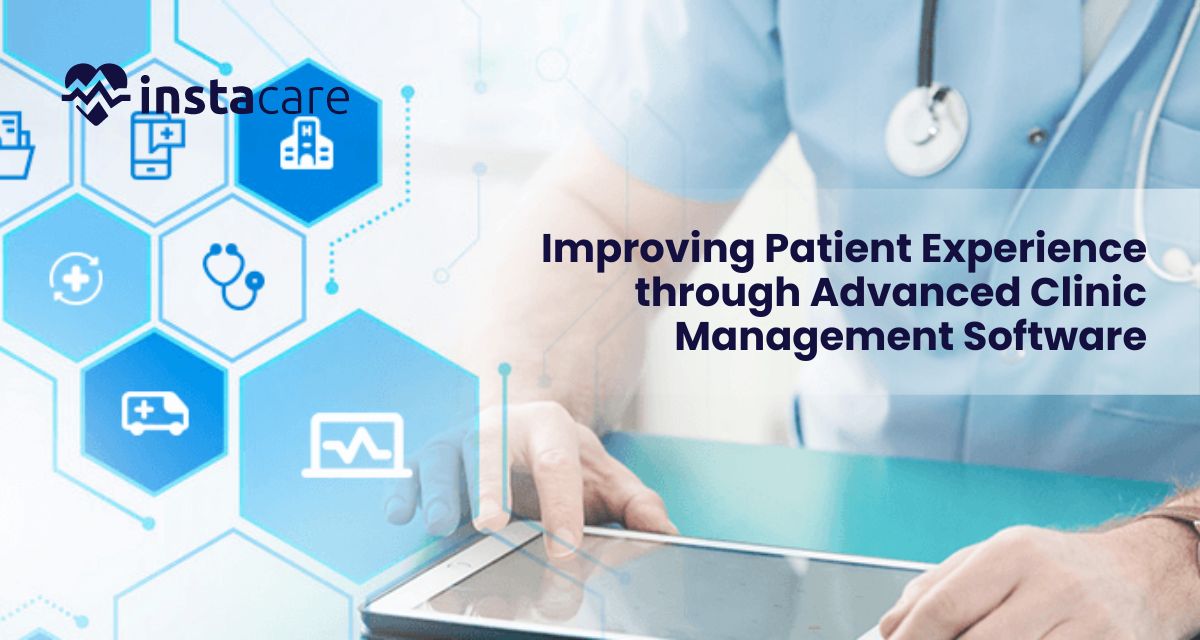Last updated on Tuesday, 24, September, 2024
Table of Contents
Improving Patient Experience through Advanced Clinic Management Software
An excellent patient experience means much more to today’s fast-moving healthcare environment than ever before. Patients are not just expecting access to care in a timely and efficient manner; they expect effortless communication with healthcare providers and the process of managing health to be completely hassle-free. It plays an important role in meeting expectations through improving efficiency in operations and communication, which follows to improve on the patient experience. This report provides information about how advanced CMS modifies patient interactions and outcomes.
What is Clinic Management Software?
Clinic management software is the technological aid for the smooth running of clinics. From scheduling appointments, patient’ records handling, billing, and communication, CMS integrates various functionalities to streamline clinics at maximum efficiency. Most current advanced CMS goes beyond its basic functionalities such as telemedicine, patient portals, analytics, and automated reminders.
Key Features of Advanced CMS
- Appointment Scheduling: Streamlines scheduling patients and staff appointments.
- Electronic Health Records (EHR): Store all records in an electronic digital repository.
- Billing and Insurance Management: Has contained automation in billing and insurance claims.
- Patient Communication Tools: Offers secure messaging, reminders, and follow-up communication.
- Telehealth capabilities. This enables virtual consultations that enhance access to care.
Streamlining Patient Experience with CMS
1-Simplify Appointment Scheduling
The most painful part is the process of scheduling. With an advanced CMS, a patient can book online, and that’s at any time of day or night.
Benefits:
Efficient Resource Use: The health care workforce is better able to control flow patterns, thereby maximizing the use of available clinical resources.
2-Electronic Health Record Centralization
Centralized electronic health records allow healthcare providers quick access to patient histories. Ease of access enhances the quality of care due to practitioners who can consider all patient-related information during a period.
Benefits:
Optimal Care Coordination: Since all information about patients is centralized, the providers can communicate and confer well, and hence this yields better results for patients.
Less Errors:
Digital charts pose no risk of misreading or losing data, thus offering higher safety to the patient.
3-Efficient Communication
A sound experience for the patient is based on proper communication between patients and providers. Improved CMS allows safe messaging that will take the patient directly to the provider.
Pros:
- Quick Answers: The patients get their answer without delays, thus eliminating anxiety and confusion for them.
- Follow-Up Care: Automated follow-up messages can remind patients about post-visit instructions or check-ups, thereby leading to better adherence to care plans.
4-TeleHealth Integration
Telemedicine has gained popularity over the years, and remote access has changed the face of how patients get care. Advanced CMS often includes capabilities that let a patient virtually consult their provider from anywhere.
Benefits
- Ease of Access: Patients in rural areas or with mobility issues can get care without traveling long distances.
- Ease:Telecare saves both the patient and the provider a lot of time, and so makes healthcare much more streamlined .
5-Automated Insurance Billing Management
Billing is perhaps one of the most frustrating problems patients have to face. The most advanced CMS can help automate the entire billing process so that patients are not confused by unnatural bills.
Advantages
- Less Confusing Bill Statements: Patients easily understand detailed bill statements and are not confused.
- Streamlined Insurance Claims: Processing claims automatically ensures a lesser delay in practice reimbursement, which gives providers ample time to concentrate on their core competencies-patient care.
6-Patient Portal
Patient portals are the key part of a mature CMS. They enable patients to access and manage their health records on a secure site.
Advantages
- Health Record Access: Patients can view all medical history, lab results, and medication lists together, thus putting the patient in the best possible position to direct their treatment.
- Self-Scheduling: Patients are enabled to schedule or even reschedule an appointment directly from the portal, adding to the convenience factor.
7-Analytics Reporting
Advanced CMS makes available very useful analytics and reporting tools, which in return allow practices to measure patient satisfaction and their own operational efficiency.
Benefits
- Comprehension of the Fields That Need Improvement: Through analysis of responses received and performance metrics, practices can enact changes, hence improving the patient experience.
- Data-Informed Decisions: With perception generated through data, providers are able to make resource allocation and service offerings choices that are informed.
Developing Contemporary Clinic Management Software
1-Needs and Objectives Assessment
The specific needs and goals of the healthcare organization must be determined prior to considering CMS, and based on these specific needs and objectives, functionalities would be determined that should be chosen – one of these might be appointment scheduling, telehealth, or billing.
2-Selecting the Right Vendor
The following are aspects that come into consideration while selecting CMS software:
- User-Friendliness: The interface has to be intuitive for employees and patients alike
- Integration Capabilities: Ensure the system is able to integrate with existing systems, as well as EHR, billing, etc.
- Customer Support: There must be good customer support to resolve a problem quickly.
3-Training Staff
Implementation success also depends on proper training. Your staff must know how to work the software in your favor. Sustained training and resource provision for the staff so that it is always fresh with regard to new features is in order.
4-Engaging Patients
An excellent method for improving the patient experience would be to educate patients on new features, such as patient portals or telehealth options. Tutorial programs or information material can also comfort the patient with regard to the new system.
Measuring Success
1-Patient Feedback
Feedback from patients through survey or focus groups can tell practices regarding how the patients experience the new system. Accrued feedback allows regular monitoring, which helps practices make necessary adjustments.
2-KPIs
Track KPIs associated with wait times for appointments, no-show rates, and patient satisfaction scores to gauge the impact of CMS on the practice’s operating efficiency as well as patient experience.
3-Continuous Improvement
Make improvements constantly through data and feedback. Processes must be considered for review and amendments to continue to improve the patient experience regularly.
Conclusion
Advanced clinic management software is changing the way health service providers deliver their services, meaning the patient benefits at the end of the line. Simplifying appointment scheduling, improving communication, integrating telehealth, and automation through billing ensures that with CMS, practice delivers more care according to patient’s expectations.
Advancements in technology will be crucial as healthcare continues, but it will be up to practices with a desire to be competitive and patient-focused enough to be able to exploit them. Clinic management software does not only enhance an entity’s operational facades but also represents an investment into improving the overall healthcare experience for patients. Emphasis on patient satisfaction and operational efficiency is equivalent to developing long-term relationships between care providers and their patients and to achieve better health outcomes.
FAQs
1-What’s the cost of implementing clinic management software?
The cost of a clinic management software depends on the feature, size of the practice, and the vendor. In most cases, actual initial costs of the software may range from buying the software to installing in your clinic and training expenses. Ongoing costs include subscription fees, maintenance, and updates. A practice must review its budget and determine its sources of financing or the type of financing in place when needed.
2-How does clinic management software improve patient communication?
Clinic management software increases the level of communication between the patient and the staff by providing a means through which patients can ask questions, get timely responses, and view their health information, thereby increasing the engagement and satisfaction level.
3-Is training for staff necessary when installing new software?
Yes, staff would have to be trained on new software. Correct training would ensure that the new software could be properly used by staff to reap all benefits and minimize disruptions in workflows.
Staff would also benefit from continuous new features or best practices incorporation through prolonged exposure towards such training.



